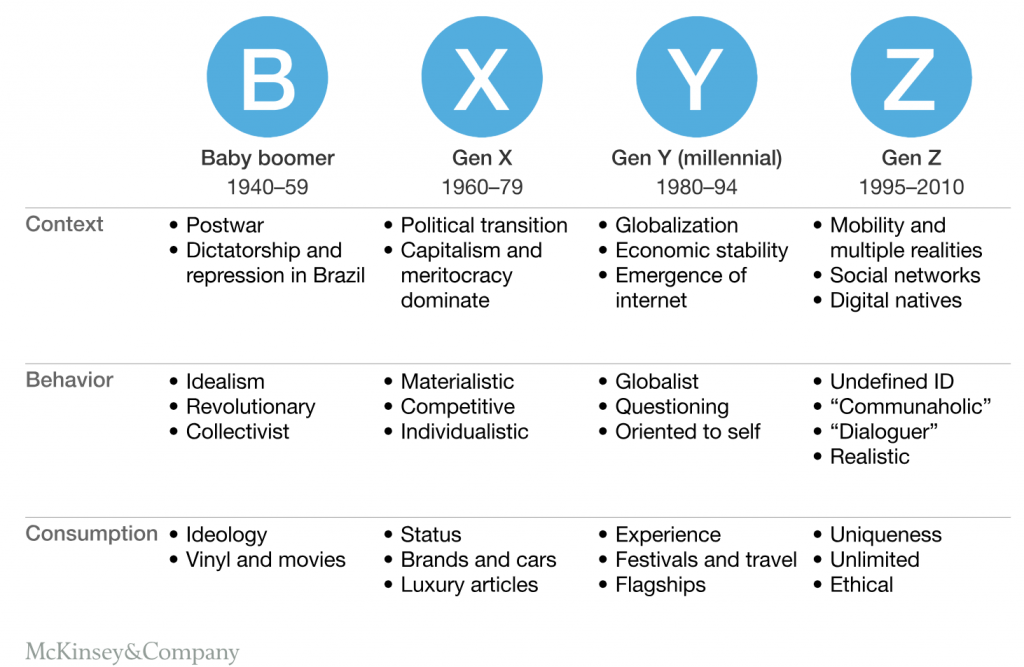Just when you thought you had got the hang of millennial marketing enter generation Z. Millennials are about to be surpassed by Generation Z. Gen Z will comprise 32% of the global population of 7.7 billion in 2019.
Below Charlie Terry, CEO of CEEK Marketing a digital marketing and social media consultancy based in London, explains why millennial marketing is soon to be irrelevant.
What is Gen Z?
Roughly, people born between 1995 to 2010 are known as Generation Z— unlike millennials they are true digital natives: from infancy, they have been exposed to the internet, to social media, and to mobile devices. The result being a hyper-cognitive generation that are extremely adept with collecting and cross-referencing many sources of information and with merging virtual and offline experiences.
The key differences can be easily understood in the table below from McKinsey & Company.

Gen Z Myths
A key point I find is missed when discussing the online behavior of different generations with brands across the globe, is the level of influence Gen Z has over previous generations. This youthful outlook to the digital world is quickly adopted by millennials and also moulds the consumption of previous generations.
Another misconception and challenge for marketeers is the notion that Gen Z only transact online. Despite growing up with mobile devices and living life in the spotlight of social media, Gen Z digital natives continue to seek out offline consumer experiences. Compared to millennials on average, Gen Z are less likely to buy online and are more likely to make visits to a brick-and-mortar shop or shopping centre to make a purchase. Although, proximity and speed is also a sticking point for Gen Z consumers, they are less likely to travel for purchases and more likely to travel for experiences.
Is Gen Z entering the economy good news?
The Gen Z demographic handover is good news for delivery services, gadget makers and the so-called gig economy. Meanwhile, it presents new challenges to the education sector, events companies, luxury brands and even for certain sports such as golf (the average age of U.S. participants now exceeds 50 years old).
Gen Z's stance on possession and access is directly influenced by the ease of access to travel via companies like Uber, the rise of delivery services such as Deliveroo and the hotel replacement service Air BnB. The speed at which services and goods can be purchased is extremely familiar to Gen Z whereas previous generations had to learn how to become comfortable with the speed and seemingly human-less purchasing process.
What are Gen Z buying and why?
Purchases by generation Z have a direct relation to the identity of the individual online and offline.
Having grown up with "the war on terror" and a severe global depression, Gen Z individuals typically exercise a developed sense of self-awareness versus self-centeredness that was displayed by their millennial predecessors. Along with a heightened awareness of mental health and ethics, brands must be extremely clear in their marketing efforts as to the story and values that they hold as an organisation.
Gen Z are extremely in-tune with what is relevant to them. The unique ability to ignore information and advertising that does not resonate with them presents a new challenge for marketing professionals and brands alike.
Studies show that Gen Z are extremely loyal to brands they feel match their social values and individuality. However, they are also extremely quick to publicly condemn and change purchasing habits on the back of conflicts with these beliefs and that is something which should not be forgotten.










